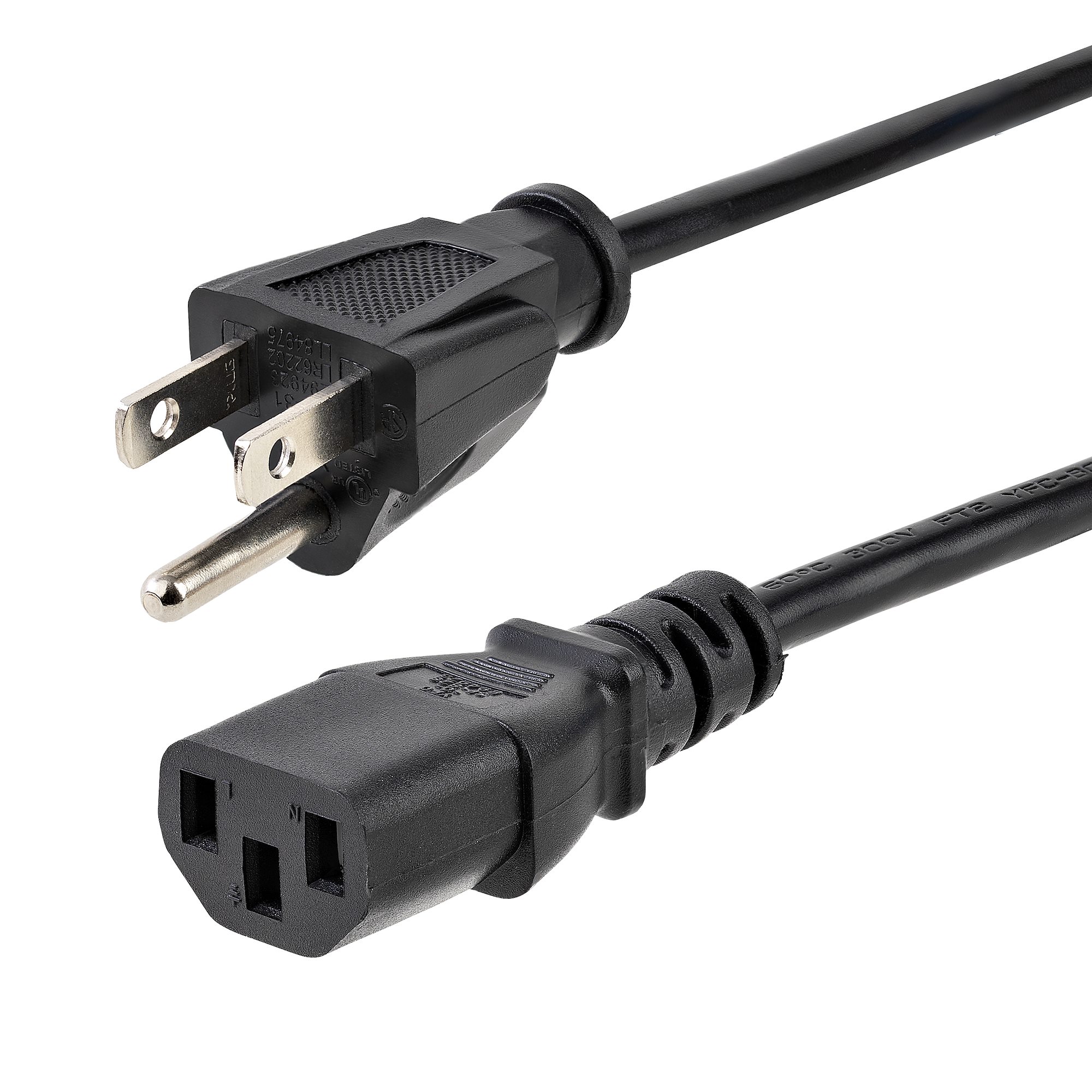What We Have Covered in This Article
Last Updated on April 2, 2023 by Editor Futurescope
No, all computer power cords are not the same. Different computers require different power cords, and even within the same computer there can be different types of power cords required for different purposes. For example, a laptop might use a AC adapter with a specific voltage and amperage, while an external hard drive might need a USB cord that provides a different amount of power.
No, all computer power cords are could be the the same. There are many different types and sizes of power cords, and each one is designed for a specific purpose. Some common types of power cords include AC adapters, DC adapters, USB cables, and HDMI cables.
Each type of cord has its own unique connector that must be compatible with the device it is being used with.
Warning: Power Cables Are NOT The Same! (4K)
Does It Matter What Power Cable You Use for PC?
Yes, it does matter what power cable you use for your PC. The type of power cable you use can affect the performance of your PC, and in some cases, using the wrong type of power cable can damage your PC. There are three main types of power cables used for PCs: ATX12V/EPS12V, PCI Express, and SATA.
Each type of power cable has its own benefits and drawbacks. Here’s a closer look at each one: ATX12V/EPS12V – This is the most common type of power cable used for PCs.
It is compatible with most motherboards and provides good stability for your system. However, it is not as efficient as other types of power cables and can generate more heat. PCI Express – This type of power cable is designed for high-end graphics cards that require more power than what the ATX12V/EPS12V can provide.
It is also more efficient than the ATX12V/EPS12V and generates less heat. However, it is not compatible with all motherboards and can be difficult to install. SATA – This type of power cable is designed for storage devices such as hard drives and SSDs.
It provides good stability and is compatible with most motherboards. However, it is not as efficient as other types of power cables and can generate more heat.
Are Computer Power Supply Cords Universal?
No, computer power supply cords are not universal. Each type of computer has a specific power supply cord that is required in order to operate properly. For example, a desktop computer requires a different power cord than a laptop computer.
If you try to use the wrong power cord for your particular type of computer, it will not work correctly and could potentially damage your machine.
Can I Use Any Cable for PC Power Supply?
The quick answer is that you cannot use just any type of cable for your PC power supply. The reason for this is because there are different types of power supplies, which require different types of cables in order to function properly. For example, some power supplies require a 24-pin ATX cable, while others may require a 4+4 pin EPS12V cable.
If you try to use the wrong type of cable with a particular power supply, it will either not work at all, or it could potentially damage your components. In order to figure out what type of cable you need for your power supply, you’ll first need to identify the make and model of your power supply unit (PSU). Once you have that information, you can then consult the documentation that came with your PSU, or look up the specifications online.
That should tell you what type of cable(s) you need. If you’re still unsure, or if you don’t have access to the documentation, you can always remove one of the existing cables from your PSU and take it with you to a local computer store; they should be able to help you find a replacement.


Are Pc Power Cords Universal?
If you’ve ever wondered if those extra PC power cords you have lying around are actually useful for anything, the answer is yes – sort of. While most PC power cords are not interchangeable, there are some universals ones that can be used with multiple devices. The most common type of universal PC power cord is the multi-pin variety.
These typically have three or four different prongs that can be inserted into a variety of slots on different types of PCs. Theoretically, this should allow you to use the same cord for multiple computers as long as they all have the same kind of input port. However, it’s important to note that not all multi-pin universal PC power cords are created equal.
Some brands and models may not be compatible with certain types of computers. Additionally, even if a cord is labeled as “universal,” it’s always a good idea to check with the manufacturer to make sure it will work with your specific model before making a purchase. At the end of the day, having a few extra universal PC power cords on hand can’t hurt – just don’t expect them to work miracles.
Can I Use Any Power Cord for My PC?
If you’ve ever wondered whether you can use just any old power cord for your PC, the answer is: it depends. The type of power cord you need depends on the type of power supply your PC uses. Most PCs these days use a standard 3-pronged plug, which means you can use any standard 3-pronged power cord.
However, some high-end gaming PCs may require a special 4-pronged or 8-pin connector. So, what do you do if you’re not sure what kind of power supply your PC has? The best bet is to check the documentation that came with your PC or contact the manufacturer directly.
They’ll be able to tell you exactly what kind of power cord you need. In general, though, as long as you have a standard 3-pronged plug, you should be good to go!
Conclusion
Are All Computer Power Cords the Same? No, not all computer power cords are the same. The type of cord you need depends on the type of device you have and the voltage it uses.
Some devices use more than one type of cord, so be sure to check your device’s manual or website to find out which cord it needs.









